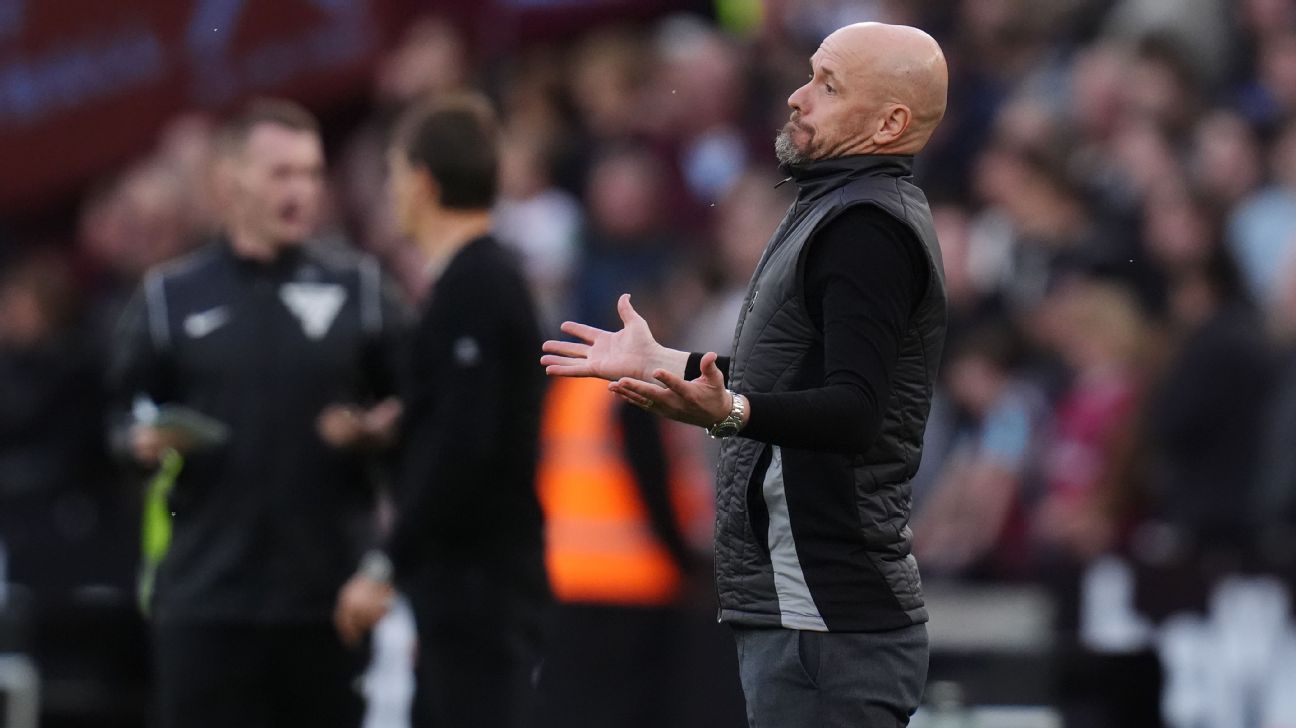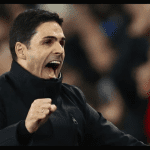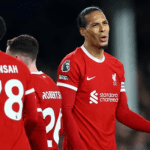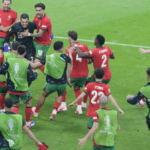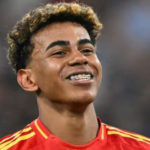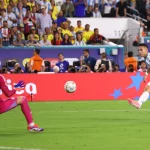Last season, Manchester United’s performance was nothing short of alarming. Finishing in eighth place marked the lowest position for the club since the inception of the Premier League in 1992. Over 38 games, the team exhibited a worrying trend, conceding one more goal than they scored—a club-worst record in the Premier League era. This stark statistic highlights a significant decline, as it was the first time since 1990 that Manchester United had a negative goal differential, a season when the league was still referred to as the “First Division.” Such numbers are shocking for a club that has long been considered one of the giants of English football.
Despite having revenues that rank among the highest in the world, Manchester United’s on-field performance suggests that the club has almost actively tried to underperform. Expectations were high for the current season, particularly with the introduction of new minority owner Jim Ratcliffe, who took control of the club’s football operations. Additionally, Dan Ashworth, known for his role in rebuilding England’s national team and successful spells at Brighton and Newcastle, was brought in to lead the front office. With such significant changes, fans and analysts speculated that a finish in the top half of the table—perhaps even a return to European competition—could be a realistic target for the team.
A Troubling Start to the New Season
As of now, nine games into the new season, Manchester United finds itself languishing in 14th place. The team has conceded three more goals than it has scored, and they have yet to face some of their toughest opponents, including Manchester City, Arsenal, and Chelsea. While their current position isn’t quite the worst start in club history, it evokes memories of disappointing campaigns under previous managers. For instance, during Erik ten Hag’s first season, United had a minus-3 goal differential after nine games, and in 2019, Ole Gunnar Solskjaer’s first season saw the team accumulate only 10 points in the opening fixtures.
In both of those prior seasons, Manchester United managed to rebound and finish in the top four. However, the club’s current plight raises concerns, as they have never been this consistently poor for such an extended period. With Ten Hag now sacked, it is crucial to analyze the metrics that illustrate how the club has sunk to this new low under his leadership and why a change was deemed necessary.
Points Per Game: A Dire Comparison
To understand Manchester United’s struggles, we can start with a fundamental statistic: points per game. Since the Stats Perform database began tracking Premier League data in the 2008-09 season, the club has had six full-time managers. Analyzing their performance reveals alarming insights. A team that averages 1.7 points per game over a full season can expect to finish with around 65 points, a tally that has become synonymous with mediocrity for a club with such a storied past.
In the Premier League era, Sir Alex Ferguson’s teams never finished a season with fewer than 75 points. The only other manager to come close was David Moyes, whose team averaged 1.7 points per game during his one season at the helm, leading to his dismissal after 34 matches. Ten Hag’s teams, despite having a longer tenure and managing a total of 84 Premier League games, also averaged 1.7 points per game—a concerning reflection of the club’s trajectory.
Defensive Failures: A Lethargic Backline
One of the most pressing issues during Ten Hag’s tenure was the defensive frailty that plagued Manchester United. The club seemed to allow opponents to score with alarming ease, leading to a defense that was statistically worse than all of its predecessors. Over the past five seasons, the average 10th-placed team has conceded around 50.4 goals per season. However, during Ten Hag’s two-plus seasons at the helm, United allowed slightly more, with a 38-game average of 50.5 goals conceded.
The reasons for this defensive ineptitude are relatively straightforward. Under Ten Hag, the team allowed more shots on target and higher-quality chances compared to the five managers who preceded him. Statistics show that United conceded an average of 30 touches in the penalty area per game, a staggering figure that overshadows the previous worst mark of 21 touches allowed per game during Solskjaer’s reign. This imbalance left the defense vulnerable, unable to effectively balance aggression and organization. Instead of bolstering their defense, the approach yielded all the downsides—poor shots conceded—without any compensating benefits.
The Lack of Offensive Improvement
The failures in defense were compounded by the team’s inability to score goals. While other clubs thrive with a high-risk, high-reward attacking philosophy, Manchester United did not benefit from such a balance. During Ten Hag’s first two seasons, the team was somewhat fortunate to achieve their league standings. According to expected points—an analytical metric that assesses the expected goal difference per match—United ranked sixth in the 2022-23 season and an alarming 15th last season. The disparity between where they finished and where they statistically should have placed raises eyebrows regarding the effectiveness of the squad.
Although Ten Hag’s teams managed to create 1.64 expected goals per game—a rate nearly matching the joint-best output during both the late Ferguson era and Solskjaer’s reign—the finishing in crucial moments has been lacking. The current season underscores this issue, as United’s finishing has been notably poor, leading to the most significant gap between expected goals and actual goals scored across the Premier League through nine games. Even with the underperformance factored in, United’s expected-goal differential remains negative, positioning them only in the 10th spot based on expected points.
The Case for Change: A New Direction Needed
The mounting evidence from these statistics illustrates a clear need for change. Manchester United has experienced unprecedented struggles under Ten Hag’s leadership, a reality that was not only reflected in their performance on the pitch but also resonated deeply with fans who demand more from their storied club. The decision to part ways with Ten Hag was not taken lightly; it reflects a broader acknowledgment that the existing approach was simply not yielding the desired results.
In sacking Ten Hag, Manchester United aims to reset the trajectory of the club. The involvement of new leadership, including Ratcliffe and Ashworth, could signal a shift in strategy that prioritizes both competitive results and the rebuilding of a team identity. As the club begins its search for a new manager, it is essential that they select someone capable of restoring confidence, reestablishing the club’s tactical philosophy, and building a competitive squad that can challenge for honors.
Looking Ahead: A Path to Redemption
While the current season has been filled with frustrations and disappointments, there remains a glimmer of hope for Manchester United. The path to redemption may not be straightforward, but with the right leadership and vision, the club can begin to rectify its recent misfortunes. A strategic focus on both defensive stability and attacking prowess will be crucial as they work to reclaim their status among the elite of English football.
As Manchester United navigates the complexities of rebuilding, the support of the fanbase will be instrumental. Engaging fans through transparency, communication, and community initiatives will help to mend relationships that have been strained by recent performances. The passionate supporters deserve a team that reflects their pride and commitment to the club.
A Turning Point
Manchester United finds itself at a pivotal moment in its storied history. The club’s alarming performance metrics under Ten Hag have prompted a necessary change in leadership. With new ownership and management at the forefront, there is hope that the club can chart a new course toward success. As they embark on this journey, the resilience of the players and the unwavering support of the fans will be paramount. Together, they can work to restore Manchester United to its rightful place in the upper echelons of English football, rekindling the glory that has long defined the club.
Please check for information on the best betting sites in India – https://selectory.org/best-betting-sites/
